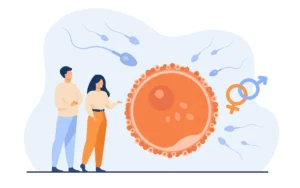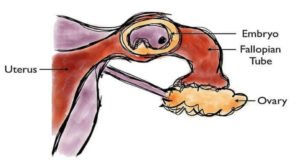

Ovulation occurs when the ovary releases an egg and some women experience bleeding & spotting around the time they are ovulating, which is a normal occurrence. It’s fairly common for women to spot or bleed at some point in their menstrual cycles. But when should you be concerned about the bleeding during ovulation?
( This blog post will explore the signs that indicate when ovulation spotting or bleeding is normal and when it is a sign of concern. it will also discuss the next steps that you can take if you are concerned about bleeding & spotting during ovulation.)
What is Ovulation Spotting?
You May Also Experience Other Symptoms of Ovulation Such as:-
- Breast soreness and tenderness
- Lower abdominal or pelvic pain
- Increased sexual desire
- Bloating
- Changes in your body's basal temperature
- Increased heart Rate
When does ovulation bleeding occur?
When is Spotting During Ovulation Considered Normal?
- First of all, it’s essential to keep in mind that ovulation bleeding occurs only once during each cycle.
- Before you start ovulating, you experience an increase in estrogen levels, which then drop after ovulation. As a result progesterone levels rise for 5 days.
- The fluctuation in E2 & P4 is what causes ovulation spotting.
When Bleeding During Ovulation is a Sign of Concern?
Some Health Conditions Can Cause Bleeding Between Periods:
- Premature spotting
- PCOS
- Ectopic pregnancy
- Bloating
- Thyroid issues
- Kidney or liver disease
Spotting between periods can also be a sign of infection. If you have a sexually transmitted infection (STI) such as gonorrhoea and Chlamydia, you have a high chance of having light bleeding.
















